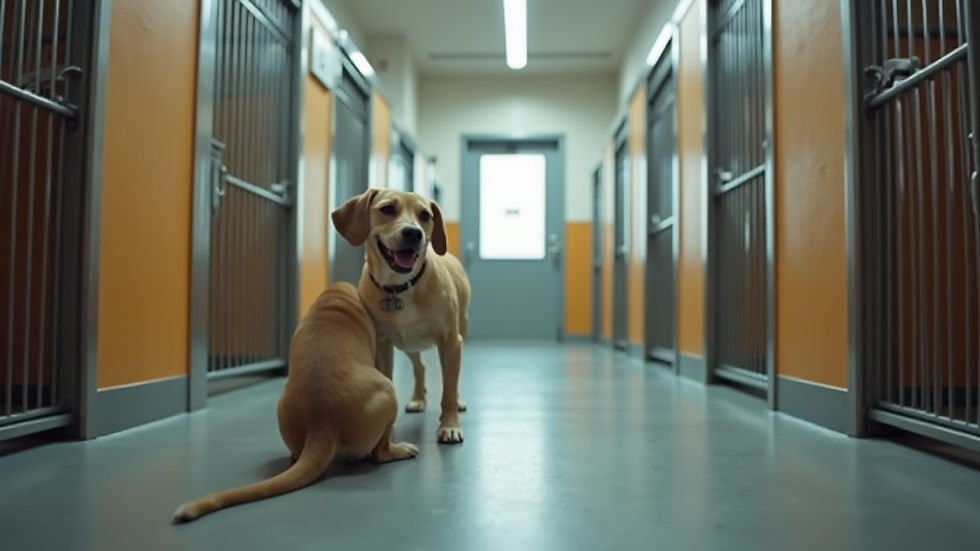How to Identify Responsible Dog Breeders
- Karen

- Aug 11, 2025
- 3 min read
Finding a healthy, happy puppy starts with choosing the right breeder. Responsible dog breeders prioritize the well-being of their dogs and puppies above all else. They follow ethical practices, provide excellent care, and ensure their puppies are well-socialized before going to new homes. This guide will help you identify responsible breeders so you can make an informed decision when adding a furry friend to your family.
What Defines Responsible Breeders?
Responsible breeders are committed to the health, temperament, and overall quality of the dogs they raise. They do not breed dogs indiscriminately or for quick profit. Instead, they focus on improving the breed and maintaining high standards.
Here are some key characteristics of responsible breeders:
Health Testing: They perform genetic and health screenings on their breeding dogs to reduce the risk of inherited diseases.
Clean and Safe Environment: Puppies are raised in clean, safe, and stimulating environments that promote physical and mental well-being.
Socialization: Puppies are exposed to various sounds, sights, and gentle handling to prepare them for life in a home.
Transparency: Responsible breeders are open about their breeding practices, health records, and the lineage of their dogs.
Support: They provide ongoing support and advice to puppy buyers, ensuring a smooth transition and healthy development.

How to Spot Responsible Breeders
Knowing what questions to ask and what to look for can help you identify responsible breeders. Here are practical tips to guide you:
Ask About Health Screenings: Inquire about the health tests performed on the parents. Responsible breeders will have documentation for tests like hip dysplasia, eye exams, and heart screenings.
Meet the Parents: Meeting the puppy’s parents gives insight into the temperament and health of your future dog.
Visiting the Breeding facility: Most breeders including ethical breeders do not allow home visits anymore. This is due to theft of Puppies, sanitation, etc.. However, there are several alternate ways to verify that they are legitimate. We are always willing to provide pictures, video, FaceTime, Skype, etc.. Anything we can do to help the customer feel more comfortable.
Request References: Ask for references from previous buyers or veterinarians.
Avoid Puppy Mills and Pet Stores: These often prioritize profit over animal welfare and may not provide proper care.
Responsible breeders will also ask you questions to ensure their puppies go to suitable homes. They care about the future of their dogs and want to match puppies with families that can meet their needs.

Is Pomsky Breeding Ethical?
Pomskies, a cross between Pomeranians and Siberian Huskies, have gained popularity for their adorable looks and playful nature. However, ethical concerns arise due to the breed’s mixed heritage and the potential health issues that can result from irresponsible breeding.
Ethical Pomsky breeders focus on:
Health and Temperament: They carefully select parent dogs to minimize health risks and ensure good temperaments.
Avoiding Overbreeding: They limit the number of litters to protect the health of the mother and puppies.
Transparency: They provide full disclosure about the breed’s characteristics and potential challenges.
If you are interested in a Pomsky, look for an ethical pomsky breeder who prioritizes these values. This ensures you get a healthy, well-adjusted puppy and supports responsible breeding practices.

Questions to Ask a Breeder Before Buying a Puppy
Before committing to a breeder, ask these important questions to gauge their responsibility and care:
What health tests have been done on the parents?
How are the puppies socialized?
What vaccinations and deworming treatments have the puppies received?
Can I meet the puppy’s parents?
What is your policy if I cannot keep the puppy?
Do you provide a health guarantee or contract?
How do you support new puppy owners?
A responsible breeder will answer these questions openly and provide documentation. If a breeder avoids or dismisses your questions, it may be a red flag.
Why Choosing a Responsible Breeder Matters
Choosing a responsible breeder benefits you and your new dog in many ways:
Healthier Puppies: Reduced risk of genetic diseases and better overall health.
Better Temperament: Puppies raised with care and socialization tend to be well-adjusted and friendly.
Support and Guidance: Responsible breeders offer advice on training, nutrition, and health care.
Ethical Impact: Supporting responsible breeders discourages puppy mills and unethical breeding practices.
Investing time in finding a responsible breeder ensures a positive experience and a happy, healthy companion for years to come.
By following these guidelines, you can confidently identify responsible dog breeders and bring home a puppy that will thrive in your family. Remember, a little research and asking the right questions go a long way in making the best choice for your new furry friend.




Comments